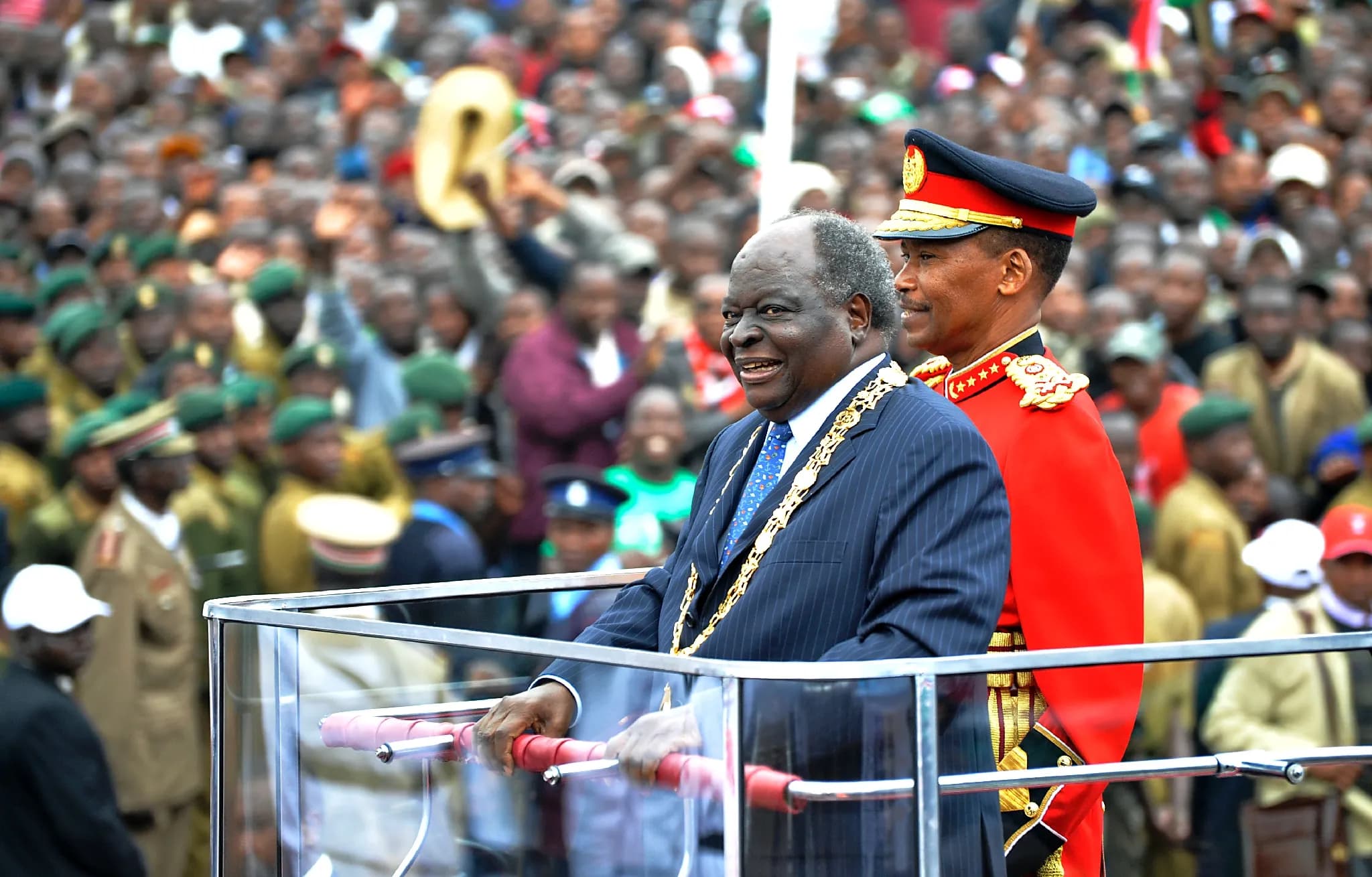We're loading the complete profile of this person of interest including their biography, achievements, and contributions.

3rd President of Kenya (2002–2013)
Public Views
Experience
Documented career positions
Mwai Kibaki – Third President of Kenya (1931–2022) Mwai Kibaki, born on 15 November 1931 in Gatuyaini village, Othaya Division, Nyeri District (then in the British colony of Kenya), rose from humble beginnings to become one of Kenya’s most prominent economists, reformers, and statesmen. Educated at Mang’u High School, he was known for academic brilliance before earning a scholarship to Makerere University in Uganda, where he graduated with a First-Class Honours degree in Economics, History, and Political Science in 1955. He later attended the London School of Economics (LSE), obtaining a BSc in Public Finance, becoming one of the first Kenyans to achieve such qualifications in the post-war period. Kibaki initially worked as an assistant lecturer in economics at Makerere before returning to Kenya in 1960. With independence approaching, he joined the Kenya African National Union (KANU) and became executive officer in 1961, marking the start of a political career defined by technocratic skill and economic expertise rather than populism. Elected Member of Parliament for Donholm (later Makadara) in 1963, he soon rose to prominence under President Jomo Kenyatta’s administration. Kibaki held several high-profile cabinet positions, shaping Kenya’s economic and financial policies for decades. He served as: • Minister of Commerce and Industry (1966–1969), overseeing industrialisation efforts. • Minister of Finance and Economic Planning (1969–1982), where he was credited with steady economic growth and infrastructure expansion. • Vice President (1978–1988) under President Daniel arap Moi, while simultaneously serving in key ministries. His reputation as a pragmatic, disciplined, and intellectual leader earned him respect across political divides. Opposition Politics and Reform Agenda In 1991, when Kenya embraced multi-party democracy, Kibaki broke away from KANU to form the Democratic Party (DP). He contested the presidency in 1992 and 1997, finishing third both times but solidifying his role as the face of moderate, reform-oriented politics. In 2002, a coalition of opposition parties formed the National Rainbow Coalition (NARC), with Kibaki as the presidential candidate. Kibaki won the December 2002 election in a landslide, ending KANU’s 40-year rule. His administration pursued ambitious reforms: • Economic Growth: Under his leadership, GDP growth rebounded from 0.6% in 2002 to over 7% by 2007. • Free Primary Education: Introduced in 2003, benefiting over one million children in its first year. • Infrastructure Development: Roads, energy, and ICT sectors expanded significantly, with flagship projects like Thika Superhighway. • Constitutional Reform: Although a 2005 draft constitution was rejected, his government eventually oversaw the enactment of the 2010 Constitution of Kenya, introducing devolution and a bill of rights. However, his 2007 re-election led to a contested outcome, triggering post-election violence that claimed over 1,000 lives and displaced hundreds of thousands. A mediated power-sharing deal in 2008, brokered by former UN Secretary-General Kofi Annan, created a coalition government with Raila Odinga as Prime Minister. Kibaki’s second term saw relative political stability, continued economic reforms, and the passage of the 2010 Constitution. He retired in April 2013 after two terms, remembered for modernising Kenya’s economy but also criticised for slow anti-corruption efforts and handling of the 2007 crisis. A devout Catholic and family man, Kibaki married Lucy Muthoni Kibaki (1940–2016), with whom he had four children. He largely avoided the public limelight outside politics, cultivating a reputation for intellectualism and reserve. Mwai Kibaki passed away on 21 April 2022 at the age of 90. He was accorded a state funeral and remembered as one of Kenya’s transformative leaders.
Introduced free primary education for Kenyan children in 2003
Implemented economic reforms leading to GDP growth averaging over 5% in the mid-2000s
Expanded road and infrastructure projects including Thika Superhighway
Faced allegations of election irregularities during the 2007 presidential poll and resulting post-election violence
News articles featuring Mwai Kibaki